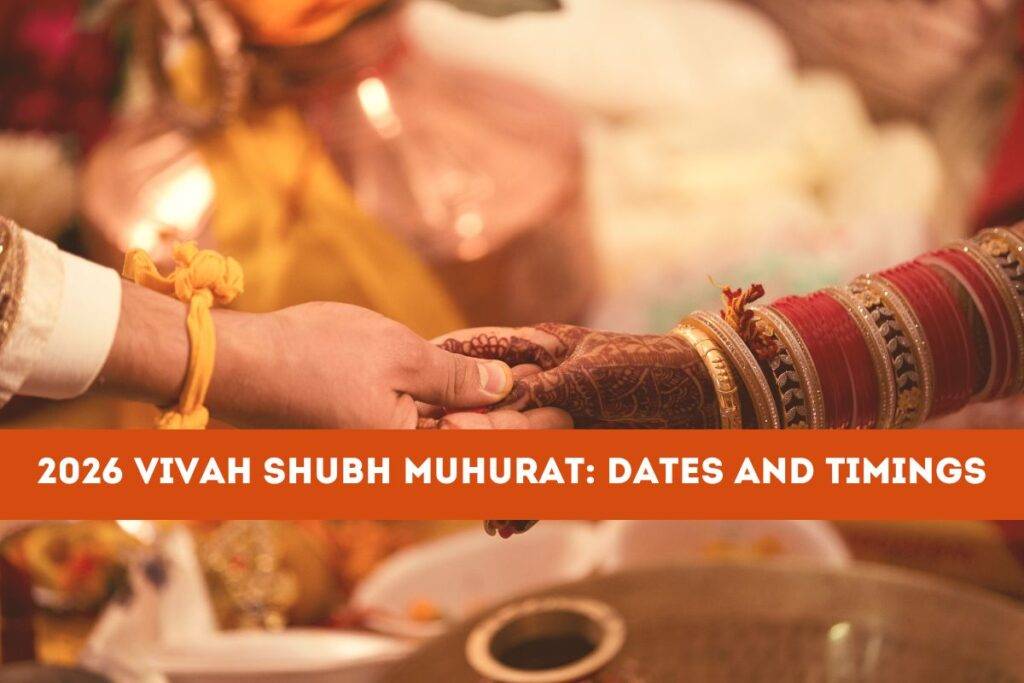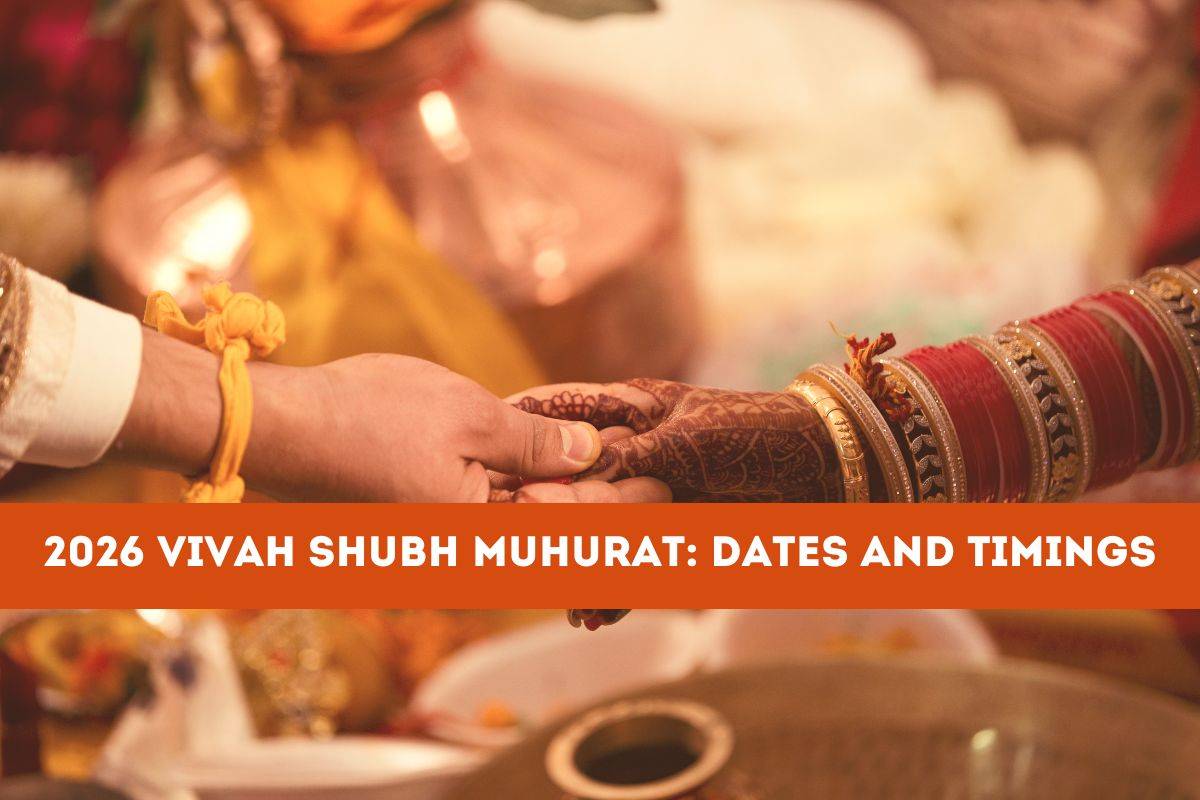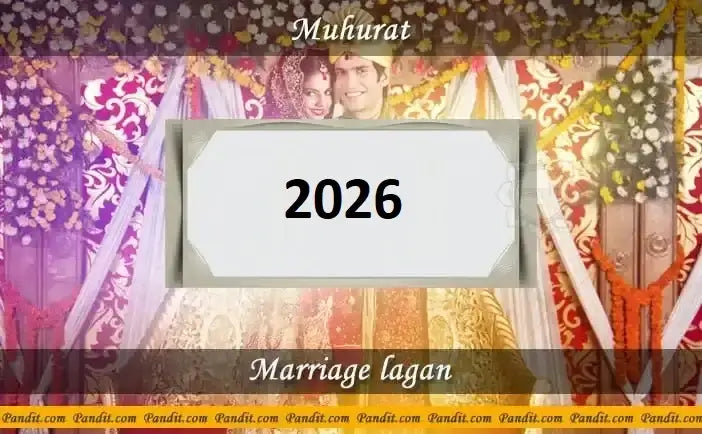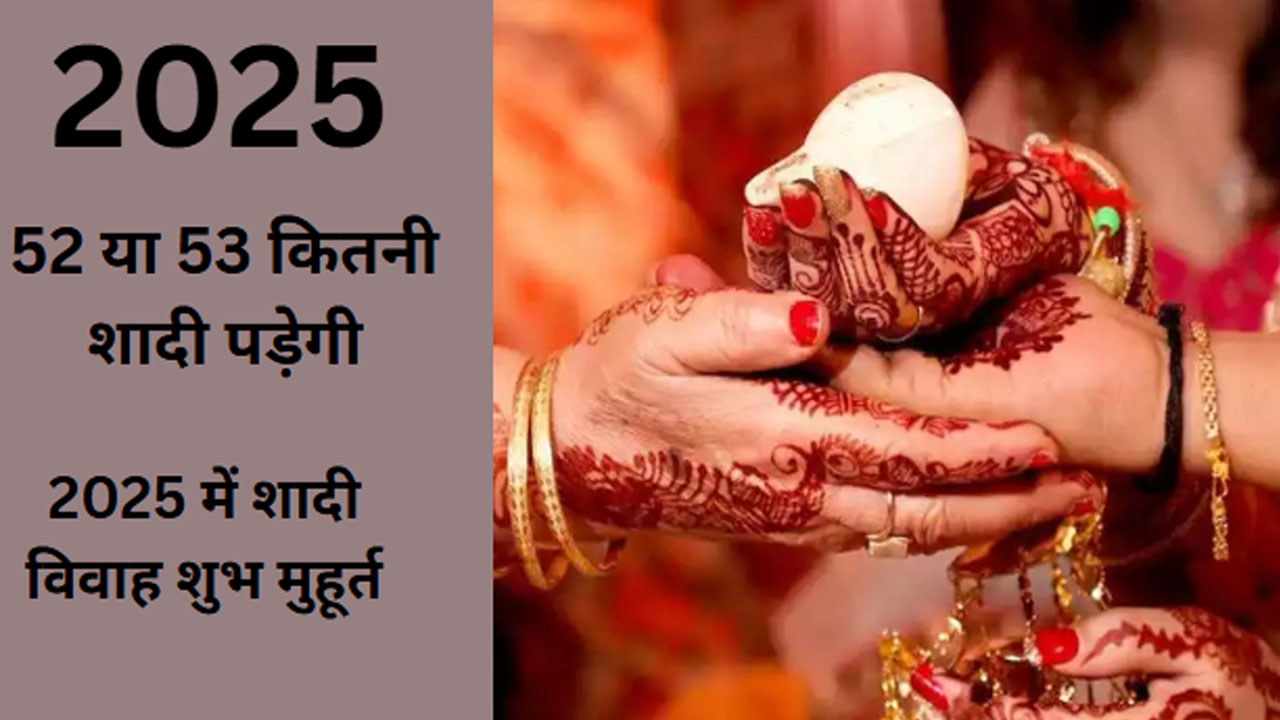
Introduction
calendar 2026 vivah muhurat represents a significant subject within its field, encompassing a range of practices, traditions, and applications that shape daily life and broader cultural landscapes. For countless individuals and families globally, particularly within Hindu traditions, the selection of an auspicious date for marriage, known as Vivah Muhurat, is not merely a formality but a foundational element of the wedding ceremony. Understanding calendar 2026 vivah muhurat provides clarity about its background, its present relevance, and the way it continues to influence various aspects of society, especially the planning and execution of matrimonial alliances. This practice is deeply rooted in Vedic astrology and ancient scriptures, guiding couples towards a union believed to be blessed with harmony, prosperity, and longevity. The meticulous calculation of these dates for the year 2026 ensures that forthcoming weddings are initiated under the most favorable cosmic influences, reflecting a profound respect for tradition and a hopeful outlook for the future.
Definition and Origin of calendar 2026 vivah muhurat
Vivah Muhurat refers to the most propitious time or date for conducting a Hindu wedding ceremony, determined through astrological calculations. The concept of Muhurat, in general, signifies an auspicious moment, and its application to Vivah (marriage) underscores the belief that timing plays a crucial role in the success and happiness of a marital union. The origins of Vivah Muhurat are deeply embedded in ancient Vedic astrology, a sophisticated system that interprets planetary positions and celestial movements to predict their influence on human lives.
This tradition is meticulously documented in the Panchang, the traditional Hindu calendar, which provides daily information on Tithi (lunar day), Nakshatra (constellation), Yoga (planetary combinations), Karana (half lunar day), and Vaar (day of the week). Astrologers consider these five basic elements, along with the positions of the Sun, Moon, and other planets, to identify periods free from malefic influences and rich with positive energies. Key astrological considerations include the strength of Jupiter (Guru) and Venus (Shukra), which are considered planets of marriage and progeny. Periods when these planets are combust (Guru Tara Asta and Shukra Tara Asta) are generally deemed inauspicious for weddings. Similarly, the period of Chaturmas (the four holy months when Lord Vishnu is believed to be in cosmic sleep) is typically avoided for auspicious ceremonies, including marriages.
The practice of observing Vivah Muhurat is not a modern invention but a continuation of centuries-old wisdom passed down through generations. Ancient Rishis and sages developed these intricate systems, believing that aligning human actions with cosmic rhythms could lead to more favorable outcomes. For weddings, this means selecting a time when the celestial energies are believed to bless the couple with a harmonious relationship, good health, prosperity, and virtuous progeny. The emphasis on specific planetary alignments, the avoidance of certain lunar phases, and the consideration of the couple’s individual birth charts (Janma Kundali) all contribute to the complexity and perceived efficacy of Vivah Muhurat calculations.
Importance of calendar 2026 vivah muhurat Today
The significance of calendar 2026 vivah muhurat extends far beyond mere adherence to tradition; it represents a deep-seated cultural belief in the power of auspicious timing to shape the destiny of a marriage. In contemporary society, despite the influences of globalization and modernization, the practice of consulting Vivah Muhurat remains remarkably strong within Hindu communities worldwide. Families continue to prioritize these auspicious dates for their children’s weddings, often making significant adjustments to their plans to align with the astrologically determined periods.
This enduring importance stems from the conviction that a marriage solemnized during an auspicious Muhurat is more likely to be successful, harmonious, and enduring. It is believed to mitigate potential challenges, foster mutual understanding, and pave the way for a prosperous future for the couple and their families. The act of choosing an auspicious date is also a communal affair, involving elders, family astrologers, and often the entire extended family, reinforcing familial bonds and cultural identity.
For 2026, the demand for Vivah Muhurat dates will be as high as in previous years. Couples and their families will seek out these dates well in advance to secure venues, book vendors, and coordinate with guests, many of whom may travel internationally. The process of identifying these dates provides a sense of reassurance and peace of mind, knowing that the foundation of the marital journey is laid on a strong, cosmically supported basis. It also serves as a reaffirmation of cultural heritage, connecting individuals to a lineage of traditions that have sustained communities for millennia. The emphasis on Vivah Muhurat ensures that the spiritual and traditional aspects of marriage are not overshadowed by modern trends, maintaining a balance between contemporary aspirations and ancient wisdom.
Benefits of calendar 2026 vivah muhurat
Observing Vivah Muhurat for weddings in 2026 offers a range of perceived benefits, deeply rooted in astrological beliefs and cultural practices. These advantages contribute to the continued prominence of this tradition in wedding planning.
Firstly, Astrological Harmony is a primary benefit. By selecting an auspicious Muhurat, the wedding ceremony is believed to align with positive cosmic energies. This alignment is thought to bless the couple with a harmonious relationship, minimizing discord and fostering mutual understanding and affection throughout their married life. The celestial configurations during an auspicious time are believed to imbue the union with favorable influences, setting a positive trajectory for the couple’s future together.
Secondly, Marital Prosperity and Longevity are anticipated outcomes. It is widely believed that a marriage solemnized during a propitious period will lead to a life filled with prosperity, good health, and the blessing of virtuous progeny. The auspicious timing is considered a safeguard against potential misfortunes and a catalyst for enduring happiness and success in all aspects of marital life, from financial stability to family well-being.
Thirdly, the practice contributes significantly to Cultural Preservation. Adhering to Vivah Muhurat ensures the continuity of ancient Hindu traditions and rituals. It reinforces cultural identity and passes down valuable knowledge and practices from one generation to the next. This act of observance helps maintain the rich tapestry of Hindu customs, ensuring that the spiritual depth of marriage is not lost amidst evolving societal norms.
Fourthly, it provides Peace of Mind and Confidence for the families involved. Knowing that the wedding has been performed at an astrologically favorable time offers a profound sense of reassurance. This eliminates anxieties about potential negative influences and instills confidence that the union has received the best possible cosmic blessings, allowing families to proceed with the celebrations with joy and optimism.
Finally, observing Vivah Muhurat is believed to be instrumental in Avoiding Obstacles and Mitigating Negative Influences. Astrological calculations aim to identify periods free from malefic planetary positions or inauspicious alignments that could potentially introduce challenges or difficulties into the marriage. By consciously avoiding such times, families seek to proactively safeguard the couple’s future from unforeseen hurdles, ensuring a smoother and more blessed marital journey. These collective benefits underscore why Vivah Muhurat remains an indispensable aspect of Hindu wedding planning for 2026 and beyond.
Applications of calendar 2026 vivah muhurat
The practical application of calendar 2026 vivah muhurat involves a structured approach to wedding planning, integrating traditional astrological guidance with modern logistical considerations. For couples and families preparing for weddings in 2026, understanding how to apply these auspicious dates is crucial.
The primary application involves Consulting Astrologers. Many families engage experienced Vedic astrologers who, after analyzing the birth charts (Janma Kundali) of both the prospective bride and groom, provide personalized Vivah Muhurat dates for 2026. This individualized approach considers specific planetary positions at the time of birth, offering a more tailored and potent auspicious period. Astrologers also provide insights into specific rituals and precautions to be observed during the chosen Muhurat.
Another common application is Utilizing Panchang and Reliable Calendars. For those who may not consult an individual astrologer, readily available Hindu calendars (Panchang) and specialized Vivah Muhurat calendars for 2026 list general auspicious dates. These calendars are compiled by learned astrologers and provide a broad overview of favorable periods, taking into account general astrological principles and avoiding universally inauspicious times like Chaturmas or planetary combustions. Families often cross-reference multiple sources to confirm the auspiciousness of dates.
Early Planning and Coordination are essential applications. Once potential Vivah Muhurat dates for 2026 are identified, families move quickly to book wedding venues, caterers, decorators, and other essential vendors. Given that many families aim for the same auspicious dates, these periods often experience high demand, making early booking a necessity. This also allows ample time for guests, especially those traveling from afar, to make their arrangements.
Furthermore, Family Discussions and Consensus-Building form a vital part of the application process. The selection of a Vivah Muhurat is often a collective decision, involving elders from both families. This collaborative approach ensures that the chosen date respects the traditions and preferences of all involved, fostering harmony and shared commitment to the wedding arrangements.
Finally, the application of Vivah Muhurat extends to Scheduling Other Pre-Wedding and Post-Wedding Rituals. While the main wedding ceremony is the focal point, many other significant rituals, such as engagement (Roka), Ganesh Sthapana, Griha Pravesh (first entry into the new home), also have their own auspicious timings. Families often consult the 2026 Vivah Muhurat calendar to ensure that these related ceremonies are also conducted under favorable astrological conditions, completing a holistic approach to the marital journey.
Challenges and Future of calendar 2026 vivah muhurat
While calendar 2026 vivah muhurat holds immense cultural and personal significance, its application in the modern world is not without challenges. These difficulties, however, also pave the way for potential adaptations and future trends in the practice.
One significant challenge is the Limited Number of Auspicious Dates. Astrologically favorable periods for weddings are often concentrated within specific months or weeks, leading to a high demand for these limited dates. This concentration results in increased competition for prime wedding venues, caterers, and other vendors, often driving up costs and requiring families to plan years in advance. This can be particularly stressful for couples with tight schedules or budget constraints.
Another challenge arises from Conflicting Modern Schedules. In an era of global careers and diverse commitments, aligning the auspicious dates with the availability of the bride, groom, and key family members, especially those living abroad, can be incredibly difficult. Work commitments, academic calendars, and travel restrictions often clash with the rigid requirements of Vivah Muhurat, forcing families to make difficult compromises or seek less ideal dates.
Regional Variations and Interpretations also present a challenge. The calculation and interpretation of Vivah Muhurat can vary slightly across different regions of India and even among different astrological schools. What is considered auspicious in one region might be less emphasized in another, leading to confusion or disagreements among families with diverse backgrounds. This necessitates careful communication and consensus-building.
The Commercialization of Weddings can also pose a challenge. The pressure to have a grand wedding on a "perfect" date can sometimes overshadow the spiritual essence of Vivah Muhurat. The focus might shift from astrological harmony to securing a trendy venue on a popular date, potentially diluting the traditional significance.
Looking to the future, the practice of Vivah Muhurat is likely to persist due to its deep cultural roots and the enduring belief in its benefits. However, adaptations are probable. There may be a growing reliance on Digital Tools and Online Muhurat Calculators, making information more accessible and allowing for quicker identification of dates. Astrologers might also develop more flexible approaches, offering a range of "good" dates rather than just a few "perfect" ones, to accommodate modern logistical realities. Furthermore, there could be an increased emphasis on the Individualized Muhurat, where personal birth charts take precedence over general auspicious periods, allowing for more tailored and potentially less restrictive options. Despite the challenges, the core belief in seeking divine blessings for a marital union through auspicious timing is expected to ensure the continued relevance of Vivah Muhurat in 2026 and beyond, albeit with evolving methods of application.
FAQs about calendar 2026 vivah muhurat
Q1: What is Vivah Muhurat, specifically for 2026?
Vivah Muhurat for 2026 refers to the astrologically determined auspicious dates and times in the year 2026 that are considered most favorable for conducting Hindu wedding ceremonies. These dates are calculated based on Vedic astrological principles, taking into account planetary positions, lunar phases, and other celestial factors to ensure a blessed and harmonious union. The specific calculations aim to identify periods free from malefic influences and rich with positive energies, particularly concerning the planets Jupiter and Venus, which are significant for marriage.
Q2: Why is choosing a Vivah Muhurat important for 2026 weddings?
Choosing a Vivah Muhurat for 2026 weddings is important because it is believed to lay a strong, positive foundation for the marital journey. Adhering to these auspicious timings is thought to attract good fortune, promote marital harmony, ensure prosperity, and mitigate potential challenges or negative influences in the couple’s life together. It also represents a deep respect for ancient cultural traditions and provides families with peace of mind, knowing they have initiated the marriage under the best possible cosmic circumstances.
Q3: What are the main benefits of observing Vivah Muhurat in 2026?
The main benefits of observing Vivah Muhurat in 2026 include achieving astrological harmony, which is believed to foster a long-lasting and loving relationship. It is also associated with marital prosperity, good health, and the blessing of virtuous children. Furthermore, it plays a crucial role in cultural preservation, upholding centuries-old traditions. Observing these dates offers families peace of mind and confidence, believing that the union is protected from adverse effects and set on a path of success and happiness.
Q4: How can Vivah Muhurat dates for 2026 be found and applied in daily life?
Vivah Muhurat dates for 2026 can be found by consulting experienced Vedic astrologers who provide personalized recommendations based on the couple’s birth charts. Alternatively, reliable Hindu calendars (Panchang) and specialized Vivah Muhurat calendars for 2026, compiled by astrological experts, list general auspicious dates. Once identified, these dates are applied by coordinating wedding planning activities, such as venue bookings, vendor selections, and guest invitations, around the chosen auspicious period. Early planning is essential due to high demand for these dates.
Q5: What challenges might arise when planning a 2026 wedding based on Vivah Muhurat?
Challenges when planning a 2026 wedding based on Vivah Muhurat include the limited number of auspicious dates, leading to intense competition for venues and vendors and potentially higher costs. Conflicting modern schedules of the couple and their families, especially those living globally, can make it difficult to align with specific dates. Regional variations in astrological interpretations can also cause confusion. Additionally, the commercialization of weddings might sometimes overshadow the traditional significance, leading to pressure to conform to popular trends rather than strict astrological adherence.
Tips for calendar 2026 vivah muhurat
Navigating the process of selecting and utilizing calendar 2026 vivah muhurat effectively requires a thoughtful and informed approach. Adopting certain strategies can help families ensure a smooth and auspicious wedding planning journey.
Firstly, Understand the fundamentals. Before delving into specific dates, it is beneficial to grasp the basic principles of Vivah Muhurat. Familiarity with concepts like Tithi, Nakshatra, planetary positions, and the general periods considered inauspicious (e.g., Guru Tara Asta, Shukra Tara Asta, Chaturmas) provides a clearer understanding of why certain dates are chosen. This foundational knowledge empowers families to engage more meaningfully with astrologers or calendar resources.
Secondly, Focus on practical use. While the spiritual aspect is paramount, the practical application of Vivah Muhurat dates for 2026 demands early and strategic planning. Once a range of auspicious dates is identified, prioritize booking essential services like venues, caterers, and key vendors well in advance. Given the high demand for popular dates, procrastination can lead to limited options or increased costs. Coordinate with both families and key guests to ensure their availability on the chosen dates.
Thirdly, Stay updated on new trends or research. Although Vivah Muhurat is a traditional practice, the methods of calculation and dissemination of information can evolve. Utilizing reputable online resources, digital Panchangs, and consulting with contemporary astrologers who integrate modern tools can provide efficient access to accurate 2026 Muhurat dates. Being open to slightly flexible interpretations, especially when rigid adherence clashes with unavoidable modern commitments, can also be beneficial, provided it is done with expert guidance.
Fourthly, Avoid common mistakes. A frequent error is last-minute planning, which severely restricts options. Another mistake is relying solely on general online lists without cross-referencing or consulting a qualified astrologer, especially if personalized Muhurat based on birth charts is desired. Ignoring regional variations in Muhurat calculations can also lead to issues. It is prudent to verify information from multiple trusted sources and engage in open communication between families.
Finally, Adopt a long-term approach. The selection of Vivah Muhurat is not just about the wedding day itself but about establishing a strong foundation for a lasting and happy marriage. While the immediate excitement of the wedding is important, the ultimate goal is the enduring well-being of the couple. Therefore, the focus should remain on the spiritual and astrological benefits that contribute to marital harmony and prosperity over the long term, rather than succumbing to short-term pressures or trends.
Conclusion about calendar 2026 vivah muhurat
The subject of calendar 2026 vivah muhurat continues to hold profound significance, serving as a cornerstone for countless Hindu weddings planned for the upcoming year. This tradition, deeply embedded in Vedic astrology and ancient cultural practices, represents more than just a date on a calendar; it embodies a collective aspiration for harmony, prosperity, and longevity in marital unions. Understanding its intricate background, its present relevance, and its enduring influence provides clarity on why families meticulously seek out these auspicious timings.
While the modern world presents certain challenges, such as limited dates and conflicting schedules, the benefits of observing Vivah Muhurat—including astrological harmony, marital prosperity, cultural preservation, and peace of mind—continue to outweigh these difficulties. The practice reinforces a deep connection to heritage, offering a sense of continuity and spiritual grounding in an ever-changing world. For 2026, the careful application of Vivah Muhurat, whether through personalized astrological consultations or reliable calendar resources, will remain a central element of wedding preparations. It ensures that the sacred institution of marriage is commenced under the most favorable cosmic auspices, symbolizing hope and blessings for the journey ahead. Thus, calendar 2026 vivah muhurat is not merely a set of dates but a vital component of cultural identity and a testament to the enduring belief in the power of auspicious beginnings, ensuring its central role in progress and relevance into the future.







Leave a Reply